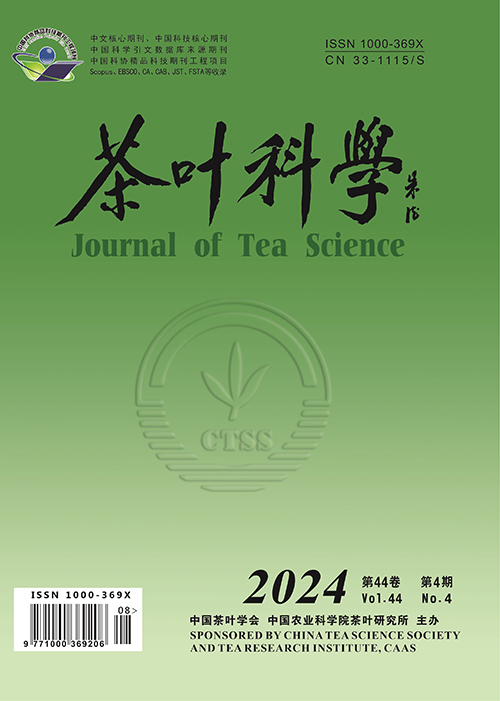Effect of Tea on Gingivits: A Community-based Study
引用次数: 0
Abstract
Pharmacological values of tea have been found by medical researchers in many countries. Catechin compounds found in tea impart several health benefits including mitigating dental ailments. However, whether dento-clinical properties of catechins are camouflaged by additive like milk or not has remained unexplored. A survey-based study involving community people suffering from gum disease (gingivitis) has been carried out to understand whether hot water extract of tea ( known as brew) without milk has any relevance in reducing gingivitis. The survey reveals a strong negative linear correlation ( r= -0.807** ) between drinking tea without milk and reduction of gingivitis. The results also reveal that frequency of gingivitis amongst people who drink tea with milk is more ( r= 0.696* ) as compared to the people who drink tea without milk. Tea made from Tinali 17/1/54 cultivar of Camelia sinensis L. O. Kuntze var, Assamica has been used in the study as this cultivar is ubiquitous in tea growing areas and can produce different categories of black tea – strong CTC tea, mild flavored orthodox tea and milder green tea.茶对牙龈的影响:一项社区研究
茶的药理价值已被许多国家的医学研究者发现。茶中发现的儿茶素化合物具有多种健康益处,包括减轻牙齿疾病。然而,儿茶素的牙齿-临床特性是否被添加剂如牛奶所掩盖仍未被研究。一项基于调查的研究涉及患有牙龈疾病(牙龈炎)的社区人群,以了解不加牛奶的热水茶提取物(称为冲泡茶)是否与减少牙龈炎有关。调查显示,喝茶不加牛奶与减少牙龈炎之间存在很强的负线性相关(r= -0.807**)。结果还显示,与不喝牛奶的人相比,喝牛奶茶的人患牙龈炎的频率更高(r= 0.696*)。由于该品种在茶叶种植区普遍存在,可以生产出不同种类的红茶——浓郁的CTC茶、温和的正统茶和温和的绿茶,因此研究中使用的是Tinali 17/1/54茶树品种Kuntze var, Assamica。
本文章由计算机程序翻译,如有差异,请以英文原文为准。
求助全文
约1分钟内获得全文
求助全文
来源期刊
CiteScore
1.50
自引率
0.00%
发文量
2558
期刊介绍:
The Journal of Tea Science was established in August 1964, approved by the Publicity Department, CCCPC. Its title was inscribed by Zhu De, the chairman of CCCPC. It was discontinued during the Cultural Revolution in 1966, and it was reissued in August 1984, approved by the State Scientific and Technological Commission.Academicians Chen Zongmao and Liu Zhonghuaof the Chinese Academy of Engineering served as the directors of the editorial board. The Journal of Tea Science is managed by the China Association for Science and Technology,sponsored by the China Tea Science Society and the Tea Research Institute of the Chinese Academy of Agricultural Sciences, and edited and published by the editorial office of the Journal of Tea Science. It is the only one of Chinese core journals in the field of tea science that is included in the core library of the Chinese Science Citation Database.Its Domestic Unified Serial Number is CN 33-1115/S, its International Standard Serial Number is ISSN 1000-369X and its International publication name code is CODEN-CHKEF4. At present, the Journal of Tea Science is a bimonthly publication, published in the middle of the month, with a book size of 16.

 求助内容:
求助内容: 应助结果提醒方式:
应助结果提醒方式:


